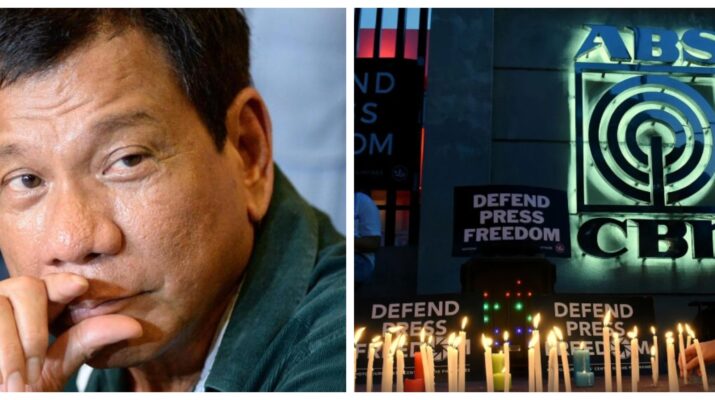The Movie and Television Review and Classification Board (MTRCB) recently suspended two shows on the Sonshine Media Network International (SMNI) channel after airing egregious content, including a death threat to member of Congress.
The programs were “Laban Kasama ang Bayan”, hosted by former NTF-ELCAC spokesperson and serial red-tagger Lorraine Badoy; and the “Gikan sa Masa, Para sa Masa” show of former President Rodrigo Duterte.
Hitting back at the MTRCB’s decision, Duterte cried fall and called the suspension of his show as a violation of his “right to free expression”. Normally, the censure of political commentary should count as an attack on that basic constitutional right; however, a cursory review of the former president’s history makes it difficult to take his claims seriously.
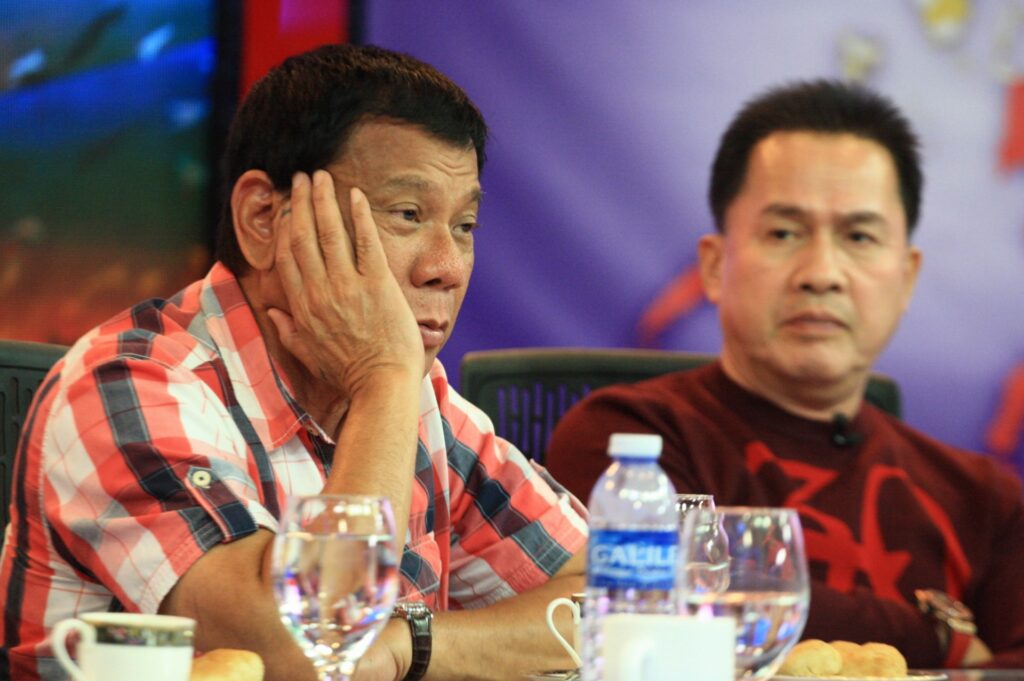
The MTRCB’s decision against Duterte’s program stemmed from complaints filed against him for making death threats and excessive profanity on the show against a political rival. On the November 15 edition of his show, the former president called ACT-Teachers party-list Rep. France Castro a “communist” and said she should be a target for killing by the government’s intelligence funds.
Castro had earned the ire of the Duterte political dynasty after her vocal scrutiny of the former president’s daughter and current vice-president – Sara Duterte’s – use of confidential and intelligence funds in both her roles as the VP and Education Secretary.
Confidential and intelligence funds are not subjected to the same level of scrutiny as other government expenditures, an ability conventionally reserved for security forces to execute their covert duties. Being civilian offices, many questioned why the Office of the Vice President (OVP) and the Department of Education (DepEd) would need such allocations.
The congresswoman was widely seen as the leading opposition voice against providing confidential funds for the Education Secretary, eventually pressuring the younger Duterte to drop her bid for such allocation. It was Castro’s criticism of his daughter that led Rodrigo Duterte to lash out at the former on his SMNI program.
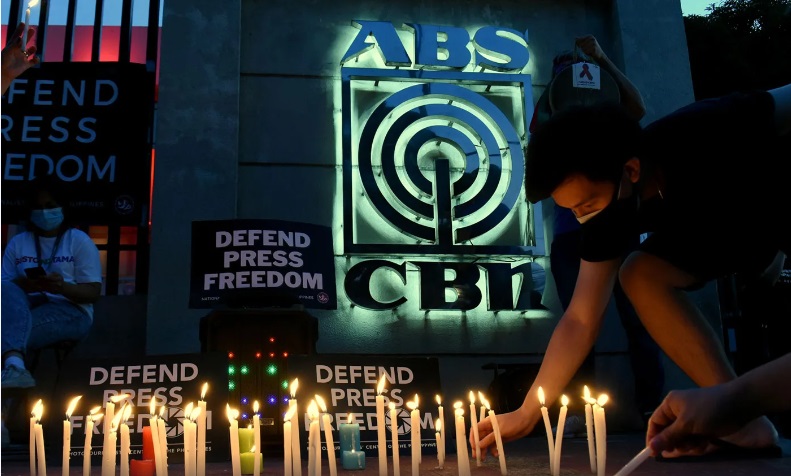
Duterte’s tirades led Castro to rightfully file grave threat complaints against the former president. Even with a complaint filed in court, the former president again threatened the congresswoman’s life; during another iteration of his show on SMNI, Duterte affirmed his earlier threats against Castro and insisted that she should be included in the government’s attacks against communists.
These repeated threats by Duterte against an elected congresswoman – or any individual for that matter – are dangerous and rightfully warrants a suspension by the MTRCB. As in any liberal democracy, the right to free expression is protected but as with any human right it is not absolute and also has limits.
Inciting violence against others goes beyond the confines of the right to free expression, and Rodrigo Duterte has no basis to cry foul over the MTRCB’s sanctions against him.
Even more so, Duterte’s fake outrage over supposed attacks on free expression is also hypocritical given that – as president – he pushed to shut down an entire network merely for their perceived opposition to his regime.
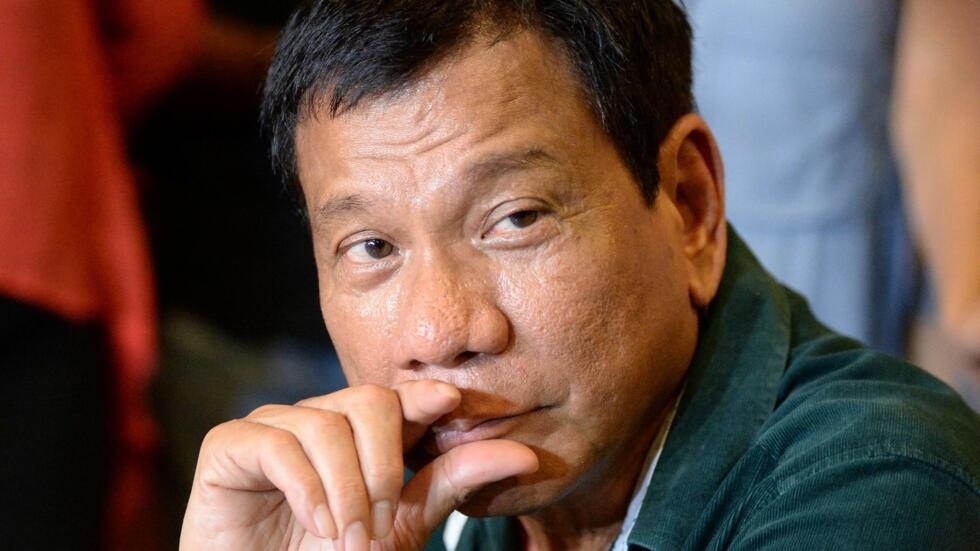
The ABS-CBN broadcasting corporation was in Duterte’s crosshairs even before his election as president, during the 2016 presidential campaign when he accused the broadcaster of being biased against him.
As president, Duterte repeatedly vilified ABS-CBN for having a political agenda and also for unsubstantiated claims of estafa and swindling. Using his allies’ supermajority in both Houses of Congress, the then president ensured that the broadcaster’s franchise was not renewed – effectively mandating the network to go off the air.
Apologists profusely argue that the former president had no direct involvement with the shut down of ABS-CBN, however Duterte himself has repeatedly boasted of his direct hand in taking the network off the air. Even before Congress denied its franchise renewal, Duterte had already advised ABS-CBN executives to sell their shares in the company, telling them not to expect their franchise to be renewed.
Towards the tail-end of his term, Duterte remained adamant that he would not allow ABS-CBN to return on the air – franchise notwithstanding. And shortly before leaving office, Duterte finally admitted to have “used presidential powers” to shut down the network.
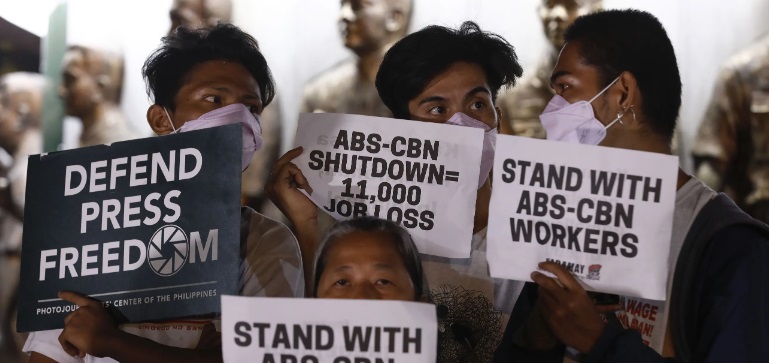
It is evident that the closure of ABS-CBN was politically-motivated, with then President Duterte playing a direct hand in the process. His motive was simple: to retaliate against a network that was critical of him – in short, a direct reprisal on the right to free expression by the press.
Hence why Duterte’s latest outburst against the suspension of his show, and the proposed shut down of the SMNI network more broadly, is farcical. When he was in office, he himself used his powers to attack the free press – he has no moral ascendancy to scream about this issue now.

